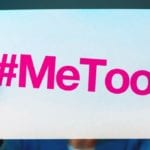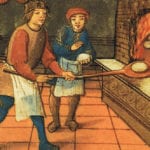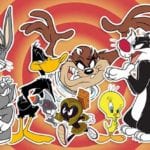 Mysteries
Mysteries  Mysteries
Mysteries  History
History 10 Surprising Stories About the Texas Rangers
 Humans
Humans 10 Philosophers Who Were Driven Mad by Their Own Theories
 Miscellaneous
Miscellaneous 10 Video-Game-Worthy Weapons and Armors from History
 Weird Stuff
Weird Stuff 10 Psychics Who Accurately Predicted Wartime Events
 The Arts
The Arts 10 Pieces of Art Inspired by a Broken Heart
 Health
Health 10 Science Fiction-Sounding New Medical Treatments
 History
History 10 Surprising Facts About the Father of Submarine Warfare
 Space
Space Ten Astonishing New Insights into Alien Worlds
 Weird Stuff
Weird Stuff 10 Bizarre Summer Solstice Rituals Still Practiced Today
 Mysteries
Mysteries Top 10 Haunting Facts About the Ghost Ship MV Alta
 History
History 10 Surprising Stories About the Texas Rangers
 Humans
Humans 10 Philosophers Who Were Driven Mad by Their Own Theories
Who's Behind Listverse?

Jamie Frater
Head Editor
Jamie founded Listverse due to an insatiable desire to share fascinating, obscure, and bizarre facts. He has been a guest speaker on numerous national radio and television stations and is a five time published author.
More About Us Miscellaneous
Miscellaneous 10 Video-Game-Worthy Weapons and Armors from History
 Weird Stuff
Weird Stuff 10 Psychics Who Accurately Predicted Wartime Events
 The Arts
The Arts 10 Pieces of Art Inspired by a Broken Heart
 Health
Health 10 Science Fiction-Sounding New Medical Treatments
 History
History 10 Surprising Facts About the Father of Submarine Warfare
 Space
Space Ten Astonishing New Insights into Alien Worlds
 Weird Stuff
Weird Stuff 10 Bizarre Summer Solstice Rituals Still Practiced Today
10 Political Misconceptions About Canada
Worldwide, Canada is generally viewed as a peaceful and tolerant nation. Almost a paradise to some. Often leading the way in areas such as education and healthcare, the “Great White North” enjoys the reputation it has worked so hard to be known for. However, more than one black mark stains the seemingly perfect facade the nation presents to the world. Canada has its fair share of social ills that have plagued the country in the past and continue to do so in the present.
10Canada Has Free Healthcare And An Excellent System

Thomas Clement Douglas is the recognized founder of socialized medicine and is regarded as a national hero by many Canadians to this day. Perhaps if Mr. Douglas was alive today to see the state of Canada’s national healthcare system, he might be calling for reform if not a complete overhaul.
That overhaul is not just a plausible whim of fancy, but is actually completely necessary in order for Canada’s healthcare system to survive into the future. Today, most provinces and territories fund the system with just under half of their total budget revenues. By 2037, however, that percentage is expected to rise sharply. If it doesn’t, the healthcare system that Canadians know and enjoy simply will not survive.
Even today, the state of healthcare in Canada is shaky at best with a severe shortage of doctors and other health professionals. The number of professionals needs to increase considerably to close the gap and keep pace with the nation’s aging population.
Add to that the current long waiting times for both medical procedures and approved drugs within the country, and one can see that the problems which are beginning to emerge within the system will hemorrhage over time into a cancer on the system itself.
Lastly, healthcare is never “free.” All Canadians pay for it one way or another through taxes and transfer payments between provinces and territories. Even after paying the appropriate taxes just to keep the system running, many medical procedures and most healthcare equipment are not covered under the system and, after age 65, most Canadians can expect to pay just over $5,000 a year to maintain their health out of their own pocket, after taxes.
The problem with the socialist Canadian healthcare system is best summed up in a quote by the former British Prime Minister Margaret Thatcher, who once famously said, “The problem with socialism is that sooner or later you run out of other people’s money.” Perhaps no other country on Earth faces this harsh truth more directly than Canada does.
9Canada Has A Legal System Pretty Much Like The United States
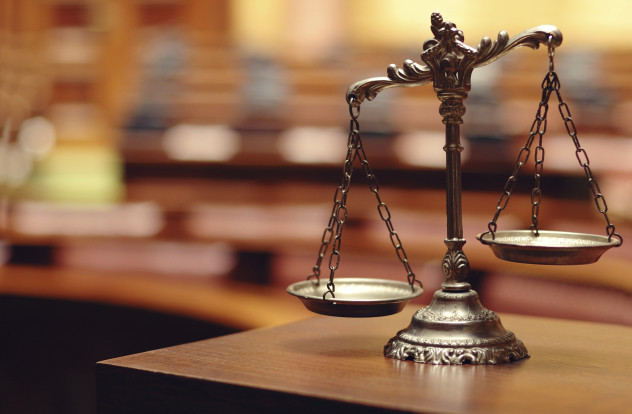
It is amazing just how little Canadians know about their own legal system (take it from me, I am Canadian). Most think that the laws upheld in Canada reflect those of its neighbor to the south. Although both countries’ legal systems were founded of the basis of British common law, and both countries have a constitution of sorts promising certain legal rights, the similarities stop right there. The differences are too numerous to list, but pointing out some of the most recognizable examples may be of use.
First off, Canadians do not have the right to bear arms as guaranteed under the US Constitution. Gun ownership is not a legal right within Canada as per Bill C-68, the Firearms Act, passed in 1995. One has to register all firearms with the government and pass a screening for a license to own and use firearms within Canada, and most types of automatic firearms are still completely restricted.
Secondly, “double jeopardy” does not work as it does in the US. The “Crown” (meaning the queen’s representative within Canada) has the right to appeal an acquittal and thereby retry a defendant for the same crime twice. As long as the Crown’s appeal was on “a point of law” (layman’s terms for “something went wrong with the legal procedures of the trial, false evidence was introduced, or additional evidence was withheld”) the Crown is free to retry an accused all they want.
Like all legal matters, this can be seen as a double-edged sword. For every person harassed and wrongfully convicted under a retrial, there is another guilty person who was prevented from going free due to a technicality.
Thirdly, one convicted of a particularly heinous crime within the country can be labeled a “dangerous offender” and not only have his or her details and whereabouts tracked by the government for the remainder of his or her life but also have additional time tacked on to his or her sentence just for being slapped with the label in the first place. This is effectively a “bad guy” sentence, very similar to the “three strikes” laws within the US but with the key difference that one does not need three strikes to be out of the ballgame.
There are many more differences to be found and simply too many to list, but for those who are truly curious, here is the entire Canadian Criminal Code. When compared to US law, one can see dramatic differences. A final curiosity point between the two systems is that in Canada all criminal laws are created and applied at the federal level, unlike in the US where individual states decide the laws applicable within them.
8Canada Is The World’s Peacekeeper
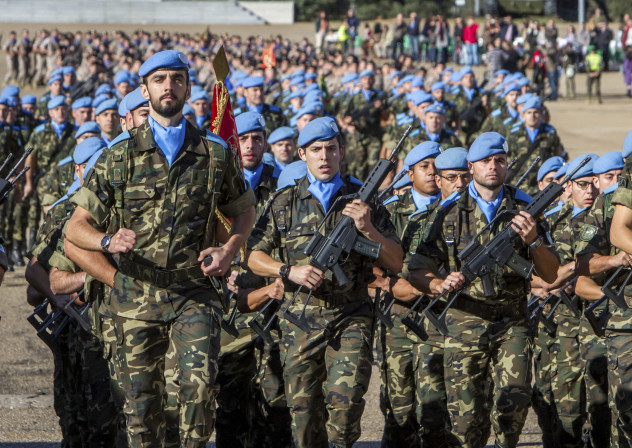
The concept of “peacekeeping” was founded in part by Lester Pearson, Canadian ambassador to the United Nations during the 1950s and Canadian Prime Minister. For many decades after the idea took hold, Canada led efforts around the world to promote stability and mitigate conflicts in some of the most dangerous nations and states in those times. However, in today’s world, Canada’s role in peacekeeping efforts is practically non-existent.
During the height of world peacekeeping operations, Canada contributed around 10 percent of all troops committed to the effort. Today, the nation ranks 65th among 193 UN member states when it comes to the job of peacekeeping. In terms of personnel, in December 2014, there were only 34 Canadian military personnel in peacekeeping operations worldwide when just a few decades ago that number was around 3,300. In other words, the nation’s efforts in peacekeeping have been reduced by 99 percent since the late 1990s.
So what caused this sudden and dramatic plunge? More than one factor. One could point to Canada’s shameful tour of Somalia where two Canadian military officers brutally beat a young Somali to death or the dramatic reduction in military spending that resulted from the scandal.
However, the real culprit was 9/11 and the result of it was that Canada entered the War on Terror by committing troops to Afghanistan. This action was taken by a nation that had not involved itself in a major conflict since the Korean War nearly 50 years earlier. As the Canadian military was already underfunded and over-stretched prior to 9/11, entry into the lengthy conflict simply demanded too much for Canada to remain both a viable military force and a peacekeeping one. With Canada’s tour of the war torn country at an end, some talk of resuming peacekeeping operations has begun to surface in the public discourse.
7Canada Has A Liberal Stance On Abortion
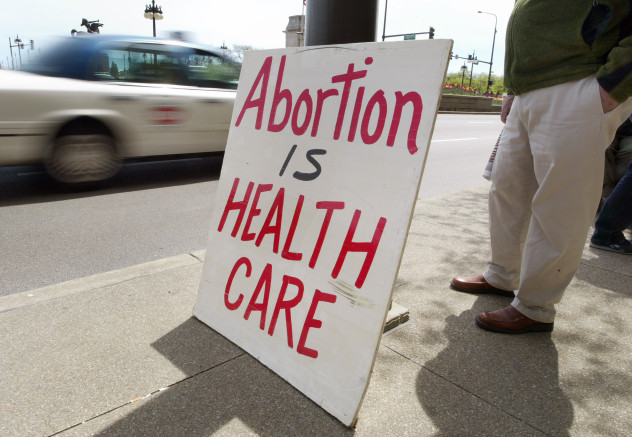
Actually, Canada has no stance on abortion at all. At least, not legally. In this country, the only legal clause which even addresses the issue states that it is a homicide when someone causes a child to die after birth by causing an injury during or before the birth.
The reason behind this odd silent stance on such a divisive issue is simply political fear. Canadian Prime Minister Stephen Harper has dodged the issue ever since his first term in office, and practically all of Canada’s lawmakers have done the same before him. The issue is simply a political “hot potato” which causes a societal uproar when it is even raised. With a new election coming in 2015, perhaps the issue will finally be dealt with once and for all.
6Canada Is Ruled By Politicians
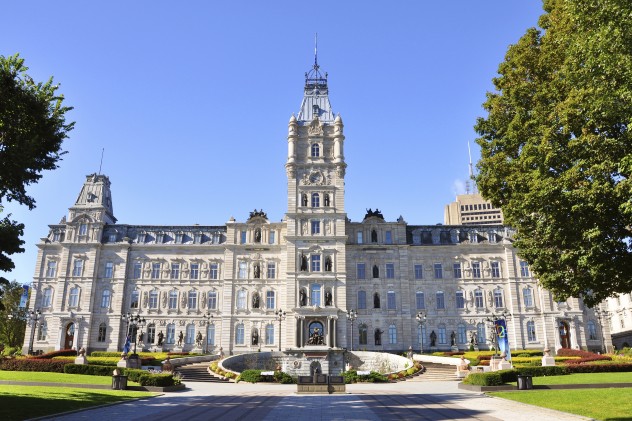
Perhaps Canadian politicians are not totally to blame for some of the more depressing aspects of our laws, as they are not the final deciders in the matter anyway. Canada’s Supreme Court is the ultimate decider of which laws are passed by politicians, as the recent fiasco over the Conservative government’s proposed prostitution laws made perfectly clear. Should the Supreme Court decide that a proposed bill passed by the House of Commons is unconstitutional, it is simply rejected and it is back to the drawing board for lawmakers.
Lawmakers do have a recourse through the “notwithstanding” clause of the Canadian Charter of Rights and Freedoms which is rarely if ever invoked, but it allows them to redraft a law that the Court has struck down. Of course, then the new law could come before the Court again and again.
Oddly enough, it is the Prime Minister who appoints the members of the court when an opening occurs. A committee is formed which chooses three select candidates for the Prime Minster’s final choice and even then the choice is still restricted by region (Quebec must have no fewer than three judges on the bench at any given time, for example, and all must be native Quebecois).
This has served to make the court almost a “shadow” institution that rules from afar with very little accountability as no one votes the judges in or out. Add to that the power to strike down laws before they are even applied to the public, and one can see that the Court in Canada is very powerful indeed. Up here, political gridlock takes a backseat to judicial deadlock in case after case.
5Canada Has A Constitution
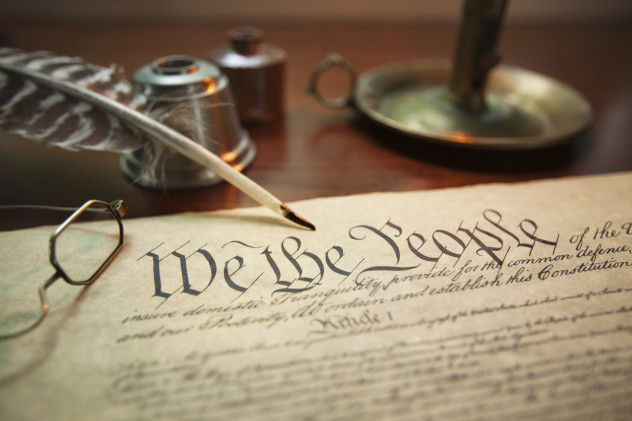
Actually, Canada has two. The British North America Act of 1867 and the Canadian Charter of Rights and Freedoms of 1982. The reason for two separate acts 115 years apart is that, similar to the United Kingdom, Canada was a nation that evolved over time during a period between 1867 (officially) and 1999 (when Nunavut, the last territory in Canada, was created).
The British North America Act was the document that spelled out the official creation of the confederation of Canada which originally included Canada West (former Upper Canada, now Ontario), Canada East (former Lower Canada, now Quebec), Nova Scotia, and New Brunswick as the four founding provinces.
Those four provinces, being dominions of the British Empire, still had a long way to go before becoming fully sovereign, though. The Statute of Westminster in 1931 officially ended the British Empire (at least on paper) and created the Commonwealth of Nations. This helped Canada gain more independence. However, as a nation Canada would have to wait over 50 years for any form of constitution that spelled out every citizen’s basic rights.
In 1982, when the Charter of Rights and Freedoms was enacted, the British Parliament also passed the “Canada Act,” which formally absolved the UK from any and all responsibility for the nation of Canada and its affairs. This was effectively a “rubber stamp” as real independence from the British was achieved long before this. However, as stated, the Charter did finally explain the rights of every Canadian citizen and this had a dramatic political effect.
To this day, many Canadians quote the US Constitution when it comes to their basic rights and firmly believe the two nations were founded on the same principles and have the same laws at a federal level. Sure, most of our rights are similar, but not all of them are.
Canadians invoke the terms “double jeopardy” and “the right to bear arms” on an almost daily basis without realizing that those terms are practically meaningless in Canada. Those are not the only examples. Political discourse, at least on the ground level, is simply stunted in Canada with very few knowing either the processes which formed our nation or what those processes actually imply. The average American citizen knows their rights. In Canada, we know their rights too, but we mistakenly think they are also ours as well.
4Canada Elects A Prime Minister With A Fixed And Fair Term
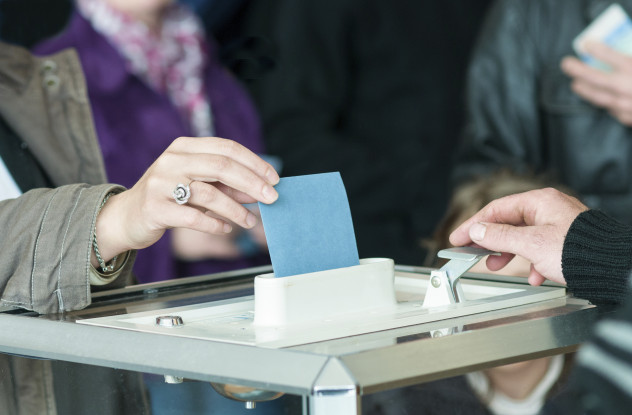
Perhaps the biggest misconception when it comes to Canada is that Canada is run politically like the US. One look at how our system actually works quickly dispels this myth. In Canada, we don’t actually elect our head of state, as our head of state is still officially the Queen. Her “representative” in Canada, the Governor General, actually decides who “runs” the country and chooses the Prime Minister from the political party with a majority of seats within the House of Commons. They can’t pick any random person, however, as they are bound by the election results.
The party with the second-greatest number of seats becomes the “Official Opposition” and serves as somewhat of a balance of power within the House itself. When it comes to our Senate, no one elects senators—they are chosen by the Prime Minister as vacancies emerge. Also, besides the fact that elections must be called once every five years, there are no “set number of terms” for the Prime Minister as for the President of the US. Theoretically, a prime minister could serve in office until his or her dying day, as long as his or her party kept winning the required number of seats in Parliament.
So what does this all lead to? Simply put, one of the most unstable political systems on Earth. One where real representation is questionable and political infighting and dirty politics reign supreme. One of the worst aspects of the way Canada’s political system works is the fact that non-majority parties can form a “coalition” party and thereby force a “no confidence vote” against the ruling party and effectively end their rule by forcing an election. Even worse is that in this kind of circumstance the Prime Minister can ask the Governor General to “prorogue” Parliament for a period of months until the situation blows over.
And none of this is simply theoretical. Prime Minister Stephen Harper has used the power to prorogue more than once. As a result of this, in the past seven or so years, the people of Canada were forced to hold elections three times with another planned for 2015. Many reforms to Canada’s political system have been called for over the years.
3Canada Has Few Guns And An Unarmed Populace
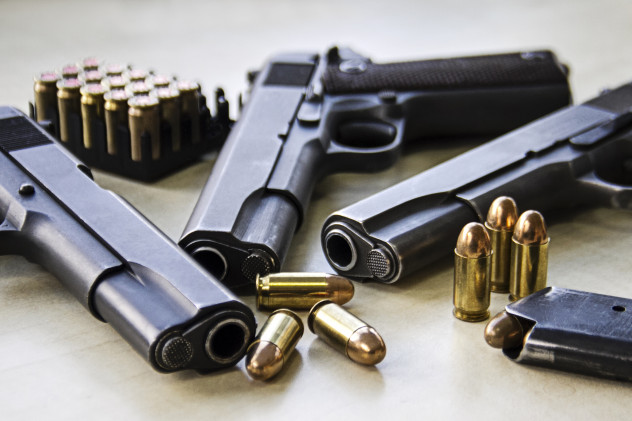
Canada is a nation of about 35 million, and there are between 7 and 11 million guns in the country. However, this statistic may be wildly underestimated as the National Firearms Association has put that figure as high as 21 million. This is only counting legal firearms, and an untold number of illegal and unregistered firearms exist within the country as well. But according to the Firearms Registry, the number is around 2.3 million.
So, what is going on here? Simply put, government waste. Initially projected to cost only $2 million in 1995, the year the registry was created, the cost of the program as of 2012 ballooned to well over $2 billion, or 1,000 times more than initially thought. All this despite the fact that there is no convincing evidence that registering firearms has been effective in reducing homicide rates.
Worse yet is the fact that the Royal Canadian Mounted Police have reported error rates between 43 percent and 90 percent in firearms applications and registry information. This kind of information is what led the Harper Government to shut down the registry as of 2012, though it may just resurface in the future.
Whatever the true number of firearms in Canada is, the number of licensed dealers in Canada can help shed some light on the truth of that subject. According to RCMP statistics, as of December 2013, there were 4,619 registered dealers in Canada, not including carriers and museums. Though 2,384 of those dealers are only licensed to sell ammunition, that leaves 2,235 official gun dealers in the country.
Compare that to the number of cities and towns in Canada, standing at 3,427, and taking into consideration the common sense factor that Canada only has 50 cities and towns with a population of over 100,000 (where most commercial businesses would be located) and one can see that at least in terms of where to buy them legally, guns are not rare in the country.
2Canada Is Crime Free Compared To Other Nations
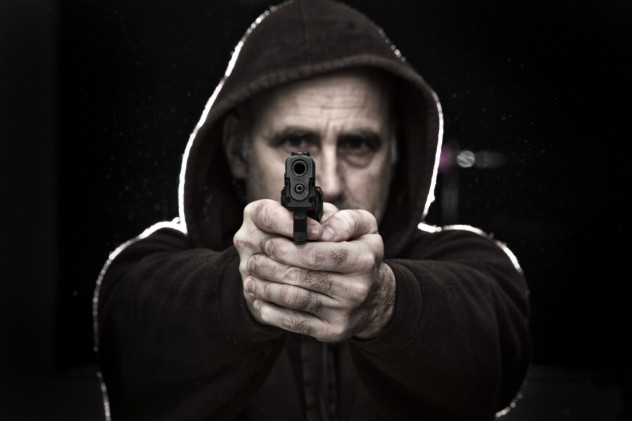
Another myth about Canada as a nation is that it is passive and peaceful, perhaps due to the fact that Canadians have a reputation around the world as being “nice.” A quick look at some statistics reveals that in most crime categories Canada ranks among the top 10 in developed nations around the world.
The nation’s homicide rate places it No. 10 on the list and the robbery rate places it No. 11. Furthermore, assault ranks No. 22, burglary at No. 15, and car theft at No. 7. Compare that to the US, which sits at No. 3, No. 8, No. 16, No. 13, and No. 10, respectively, and one can see that the differences between the two nations are not that dramatic.
Another way to look at this subject is by looking at the rate of incarceration within Canada, which has risen by 75 percent over the last decade with most of those individuals incarcerated being minorities. Whether this is due to flaws in the justice system or simply an overall increase in crime is debatable, but what is glaringly clear is that in comparison to most developed nations in the world, Canada’s problems with crime are not just alarming, but escalating as well.
1Canada Is Multicultural, Tolerant, And Not Racist
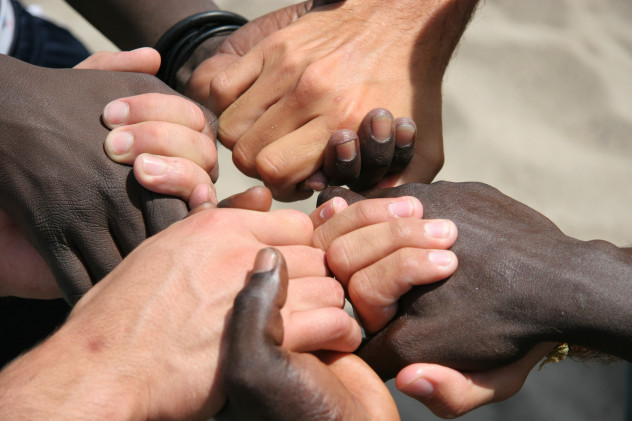
Multiculturalism is almost a mainstay in Canada, frequently cited by our politicians and traveling guides as a shining example to the world of how people from all sorts of races and cultures can co-exist in peace and harmony. Like all things said by those with an agenda, the reality behind this is far different. Not only has Canada experienced many incidents of outright racism—endorsed by the state in the past—discrimination runs rampant today as well. As usual, the racism experienced within Canada is mainly against Native Canadians and minorities.
Another form of intolerance comes in the issue of language, as Canada officially has two languages: English and French. Quebecois have traditionally been both the victims and the perpetrators of this form of intolerance, with the issue being so divisive that it nearly led to the breakup of the entire country in 1995.
From a personal perspective (coming from a person who has lived coast to coast throughout the country), I can recall an eye-opening experience I had while walking down Denman Street in Vancouver late on a Friday night. I paused for a moment and looked at the lines that had formed outside many of the clubs which lined the street and noticed something alarming. One club had only Caucasian people in line, another had only Asian, and the third had only people of African descent. Not a single line deviated from this pattern. I was young then, and still a bit naive to the world, but it was at that moment that I realized that perhaps the reality of “tolerance” within my country was a bit skewed. Since then, I have lived in almost every major city within Canada, and similar patterns have been repeated everywhere I have lived.
Canadians have a tendency to look at the outside world as if we are somehow morally superior to the rest of it. But, if we spent as much energy on self-reflection instead, perhaps we could take the steps toward becoming a true example for others to follow.
Damien B. is a Canadian who dared to take an honest look at the state of his own country and, in doing so, is a bit humble before the rest of the world now.

